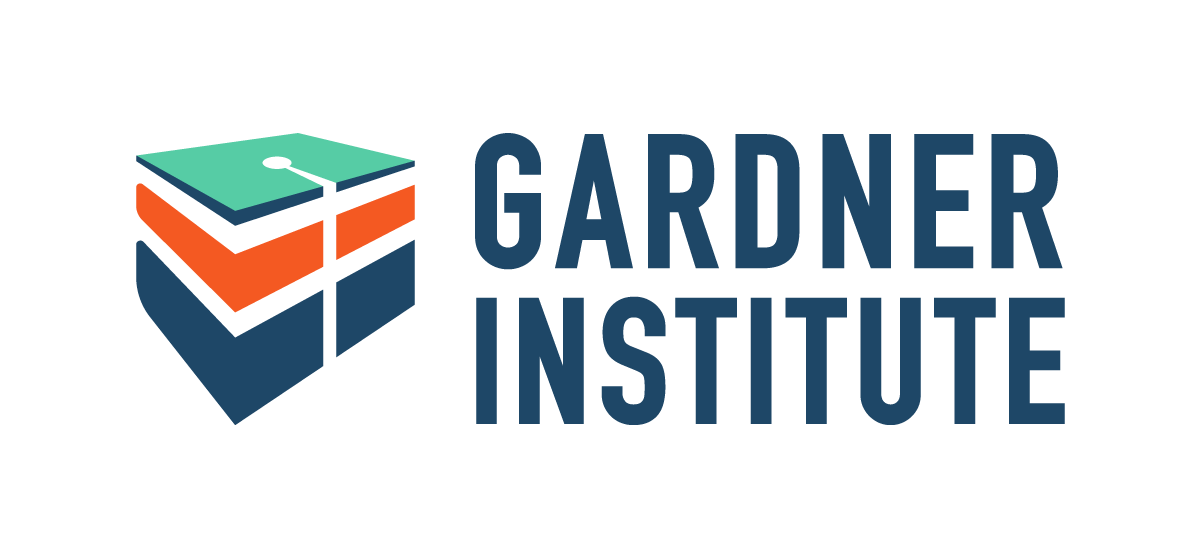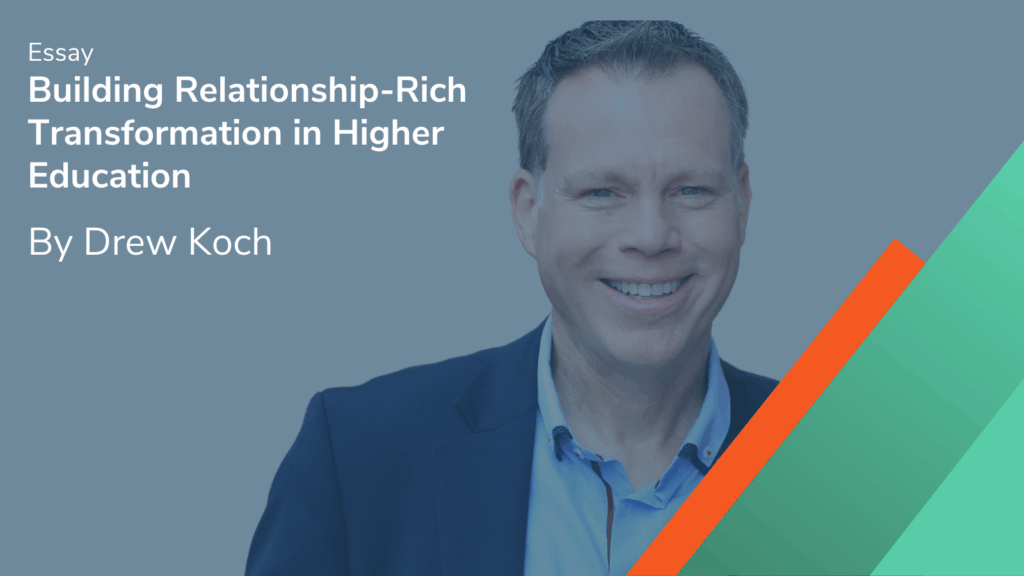Essay by Drew Koch, CEO, Gardner Institute
August 25, 2025
At the Gardner Institute, our Transformation Vision is bold: to reshape the postsecondary experience so that all learners thrive, complete high-value credentials or degrees, and build lives of purpose and fulfillment. Achieving that vision calls for coordinated, sustained innovation on a scale that matches the challenges our students and institutions face. Together with our growing network of institutional partners, we are leading this work and are now welcoming our third Transformation cohort – a milestone I will share more about in a future newsletter.
As we have advanced the Transformation Vision, one truth has become undeniable: transformation is defined not only by the outcomes we reach, but by the path we take and the choices we make to reach them. Innovation in student success remains the driving force behind progress, yet its impact depends on more than novelty alone. The most meaningful innovation-driven change is shaped by the realities of context and alignment with other efforts so that efforts work in concert rather than in isolation.
Building on the work of Georgia Tech’s Center for Deliberate Innovation, we embrace two powerful forms: reformative innovation, which improves what is already being done, and formative innovation, which creates something entirely new. Together, these approaches lay the groundwork for something even more profound: relationship-rich transformation.
The work of Leo Lambert,Peter Felten, Isis Artze Vega, and Oscar Miranda Tapia – all fellows and/or board members with the Gardner Institute – shows that relationships are a cornerstone of meaningful learning – especially for first-generation students and those historically underserved by higher education. Relationship-rich education rests on four essential elements:
- genuine welcome and deep care,
- inspiration to learn,
- a web of significant engagements,
- and exploration of meaning and purpose.
We are extending these same principles beyond the student experience to our partnerships with institutions. In doing so, we are building relationships where institutional partners feel authentically welcomed, are inspired to grow, connect meaningfully with peers and colleagues, and explore the deeper “why” behind their transformation work. This approach strengthens institutions – especially those experiencing initiative fatigue – by harmonizing priorities and sustaining the energy needed for long-term change.
Looking ahead, we are challenging our team to set concrete innovation goals tied to relationship-rich transformation. These may involve enhancing how partners are welcomed, creating new opportunities for learning, expanding webs of connection, or helping leaders and teams reflect on meaning and purpose. By focusing on such actionable, human-centered innovations, the Gardner Institute is deepening its ability to help colleges and universities not just adapt but truly thrive in the face of change.
In the coming months, I will devote future newsletter essays to exploring each of the four essential elements of relationship-rich transformation. As I do, I invite you to join me in considering how these elements can shape the future of higher education.
I am deeply grateful to our partners, colleagues, and friends for walking alongside us in this work. Our commitment is clear: while our language and strategies adapt to meet the moment, our mission and values remain unwavering. Together, we will continue to build the relationships that make transformation possible, knowing that the future of higher education is shaped by what we do today. And we will do this work with purpose, focus, and a shared belief in the change we can create.


